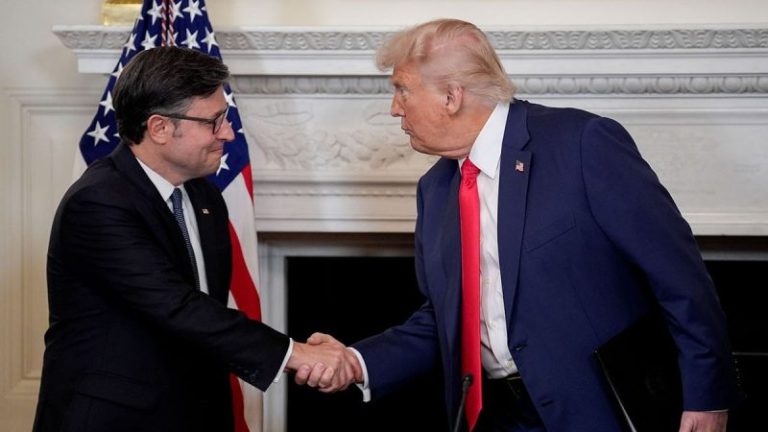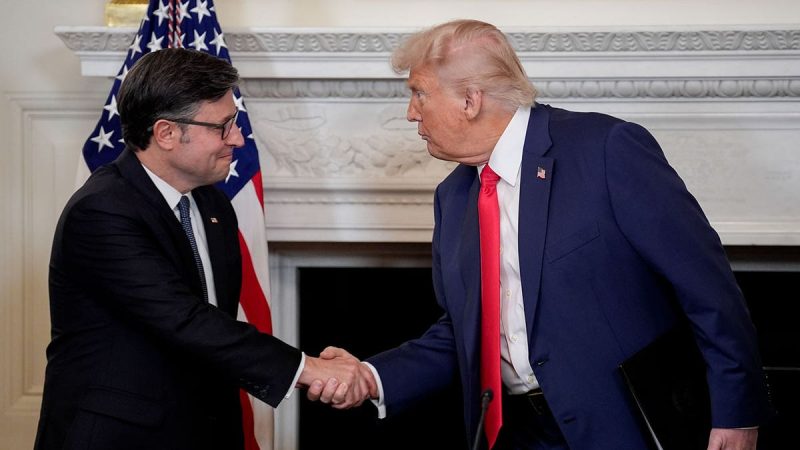
As Venezuela enters the post-Nicolas Maduro era, former officials and regional experts warn the country may be facing not a democratic transition, but a period of deeper instability and internal conflict between possible successors that some warn could be even worse than Maduro.
Marshall Billingslea, the former assistant secretary for terrorist financing and financial crimes in the U.S. Treasury Department, said Maduro’s removal has exposed a fractured system that was never held together by a single strongman, but by competing criminal power centers now moving independently.
‘The cartel has always been a loose association, with each of the mafia bosses having their own centers of gravity,’ Billingslea said. ‘Maduro was the frontman, but he didn’t exercise total control. Now we’re seeing each of those centers spinning off on their own.’
Billingslea said the capture of Cilia Flores, Maduro’s wife, was as consequential as Maduro’s removal itself.
‘The capture of Cilia Flores is a particularly big deal because she was the brains behind the operation and the one who cleared out potential rivals,’ he said. ‘Her removal is equally significant.’
Billingslea outlined what he described as five competing power centers, four within the regime and one outside it. ‘The removal of Maduro, and particularly the removal of Cilia Flores, leaves a huge power vacuum in the cartel,’ he said. ‘We haven’t yet reached a new equilibrium here.’
In the interim, he foresees a high risk of internal power struggles, violence and further repression as rival factions maneuver to secure control in a post-Maduro Venezuela. But he notes that the Trump administration anticipates this and is executing a clear-eyed strategy to first secure U.S. core interests, followed by the gradual restoration of democracy, all without needing American ‘boots on the ground.’
Delcy Rodríguez takes over, but power remains contested
Delcy Rodríguez, Maduro’s longtime vice president, was quickly installed as interim leader. But her rise has done little to reassure Venezuelans or international observers that meaningful change is coming.
Rodríguez is deeply embedded in the Maduro system and has long played a central role in overseeing Venezuela’s internal intelligence and security apparatus. According to regional reporting, her focus since taking office has been consolidating control within those institutions rather than signaling political reform.
Former U.S. and regional officials say Delcy Rodríguez’s rise has revived long-standing questions about who truly influences her decisions as she moves to consolidate power.
Those officials point to Rodríguez’s deep ties with Cuban intelligence, which helped build and operate Venezuela’s internal security and surveillance apparatus over the past two decades. Cuban operatives played a central role in shaping how the regime monitored dissent and protected senior leadership, embedding themselves inside Venezuela’s intelligence services.
At the same time, former officials say Rodríguez appears to be testing cooperation with Washington, creating uncertainty over how much leverage the United States actually holds. Some view her limited engagement with U.S. demands as tactical, aimed at buying time while she works to secure loyalty inside the regime and neutralize rival factions.
A former Venezuelan official previously told Fox News Digital that Rodríguez ‘hates the West’ and represents continuity with the Maduro regime, not a break from it.
Cabello mobilizes loyalists
Diosdado Cabello, one of the most feared figures in the country, has emerged as a central player in the post-Maduro scramble for control.
Cabello, who wields influence over the ruling party and interior security, has been rallying armed colectivos and loyalist groups. Those groups have been active in the streets, detaining opponents and reinforcing regime authority through intimidation.
Sanctioned by the U.S. Treasury for corruption and alleged ties to drug-trafficking networks, Cabello is widely viewed as a figure capable of consolidating power through force rather than institutions.
Jorge Rodríguez holds the levers of control
Jorge Rodríguez, president of the National Assembly and brother of Delcy Rodríguez, remains one of the regime’s most important political operators.
Rodríguez has served as a key strategist for Maduro, overseeing communications, elections and internal coordination. Recent reporting indicates he continues to work closely with his sister to maintain control over intelligence and security structures, reinforcing the regime’s grip despite Maduro’s removal.
Experts say Rodríguez could play a central role in shaping any managed transition that preserves the system Maduro built.
Padrino López
Defense Minister Vladimir Padrino López, long considered the backbone of Maduro’s survival, remains a critical figure as well.
While Padrino López has not publicly positioned himself as a successor, analysts note that the armed forces are no longer unified behind a single leader. Senior generals are split across competing factions, raising the risk of internal clashes or a shift toward overt military rule if civilian authority weakens further.
Beyond the power struggle among regime elites, Venezuela faces a broader danger.
Large parts of the country are already influenced by criminal syndicates and armed groups. As centralized authority weakens, those actors could exploit the vacuum, expanding control over territory and smuggling routes.
Experts warned that an uncontrolled collapse could unleash forces more violent and less predictable than Maduro’s centralized repression, and the events unfolding now suggest that risk is growing.
Outside the regime, opposition leader María Corina Machado remains the most popular political figure among Venezuelan voters. But popularity alone may not be enough to translate into power.
Machado lacks control over security forces, intelligence agencies or armed groups. As repression intensifies and rival factions maneuver, her ability to convert public support into political authority remains uncertain.
Maduro’s fall, analysts say, did not dismantle Venezuela’s power structure. It fractured it.
With armed loyalists in the streets, rival factions competing behind the scenes, and an interim leader struggling to assert authority, Venezuela now faces a dangerous period in which the aftermath of Maduro’s rule could prove more chaotic — and potentially more brutal — than what came before, experts say. For Venezuelans, the question is no longer whether Maduro is gone, but whether anything that replaces him will be better.


























